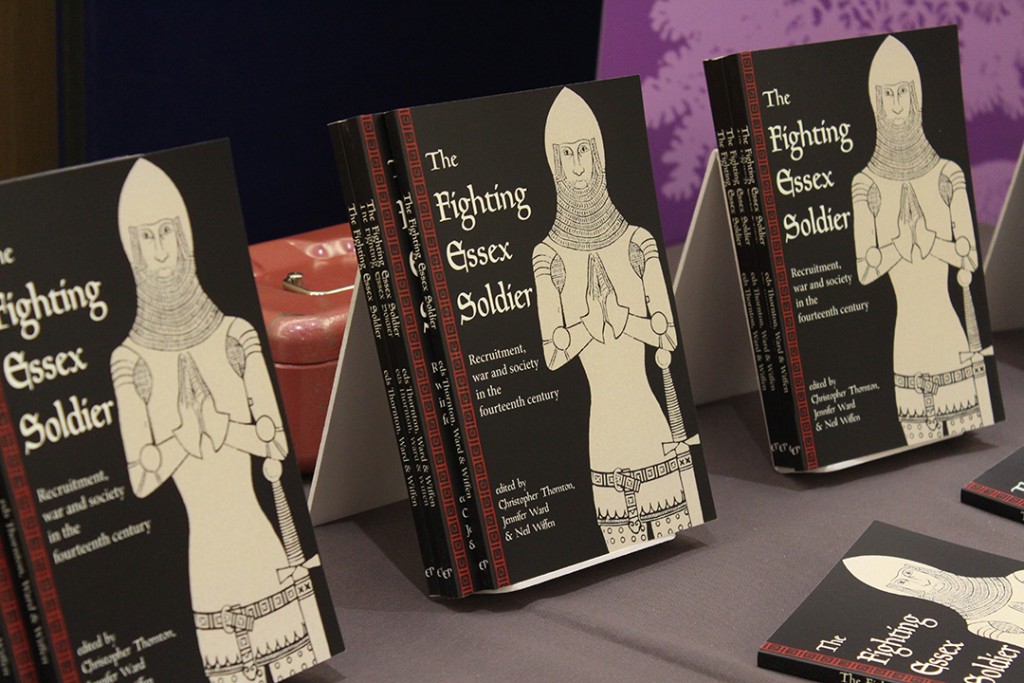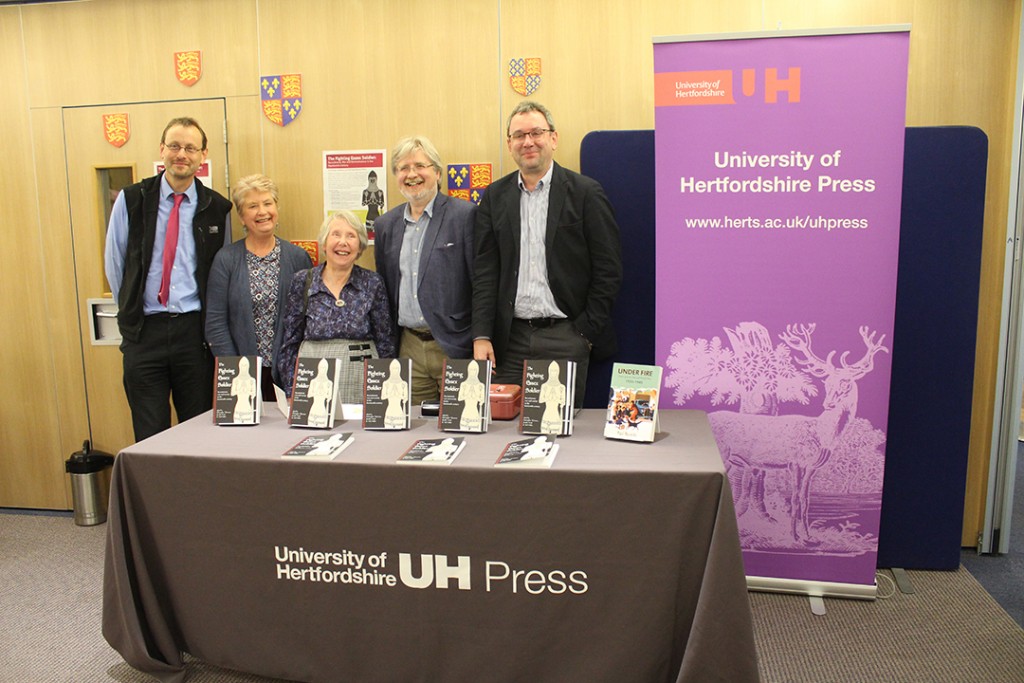On Saturday 6 May we hosted the launch of The Fighting Essex Soldier: Recruitment, War and Society in the Fourteenth Century.
Three years in the making, this book has grown from a conference held at ERO in March 2014 looking at the contribution made by Essex to the fighting of the Hundred Years’ War.

Hot off the press, the related chapters in the The Fighting Essex Soldier add up to a wide-ranging survey, exploring military, social and economic history in fourteenth-century Essex.
The volume is a collection of papers based on those given at the conference back in 2014:
| Introduction: crown, county and locality
Christopher Thornton and Jennifer Ward |
| Essex and the Hundred Years War: taxation, justice and county families
Jennifer Ward |
| The contribution of Essex gentry to the wars of Edward I and Edward II
David Simpkin |
| Organised crime in fourteenth-century Essex: Hugh de Badewe, Essex soldier and gang member
Gloria Harris |
| The fighting men of Essex: service relationships and the poll tax
Sam Gibbs |
| Shipping the troops and fighting at sea: Essex ports and mariners in England’s wars, 1337-89
Andrew Ayton and Craig Lambert |
| Military aspects of the Peasants’ Revolt of 1381
Herbert Eiden |

The editors and some of the contributors to The Fighting Essex Soldier, from left to right: Neil Wiffen, Gloria Harris, Dr Jennifer Ward, Dr Christopher Thornton, Dr Herbert Eiden.
The original conference was the brainchild of Neil Wiffen, who is an ERO team member and one of the editors of the new book. His inspiration was reading Arms, Armies and Fortifications in the Hundred Years War, edited by Anne Curry and Michael Hughes, and wondering what part was played by Essex in all these upheavals.
Throughout the fourteenth century, the wars waged by English kings against France and Scotland resulted in a dramatic increase in the number of men involved in warfare, both on land and at sea. The new research published in this book seeks to identify these soldiers at all levels of society, focused within the historic county of Essex. Questions considered include how forces were raised to serve the king, and the impact on communities of the demands of taxation and the supply of ships and men for the war effort. Other chapters consider the effect of militarisation on men returning from the wars.
The book is now available to purchase from the University of Hertfordshire Press website.

The launch of the book was celebrated with plenty of cake (as all things in archives ideally are)
